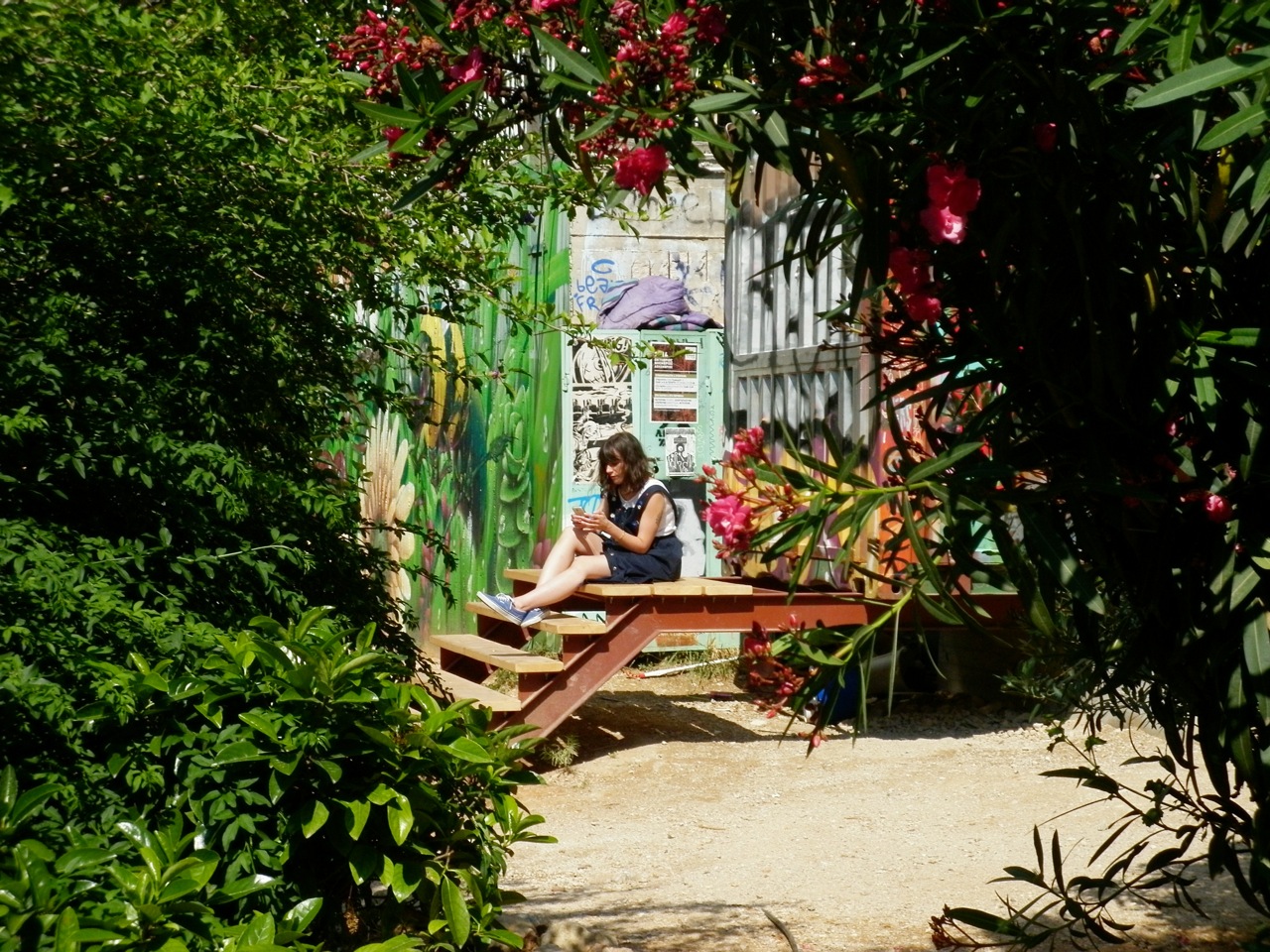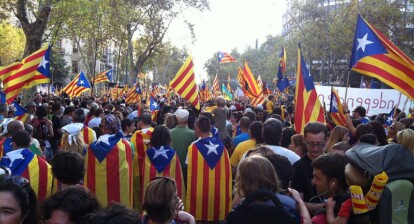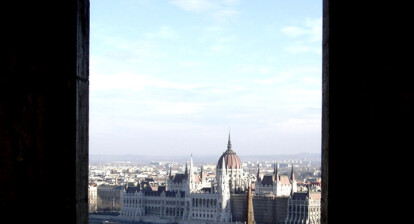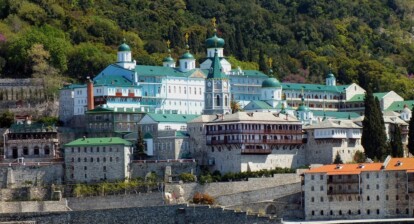What do Europeans do when they have nothing left to lose? Do they find refuge in their own homes and cry over the injustice that got them or do they stand up and fight for what is theirs? Milan, a Serb currently living in the “cradle of democracy”, namely Athens, paints the picture of two diametrically opposed citizens’ approaches.
The Athenian Peaceful Haven
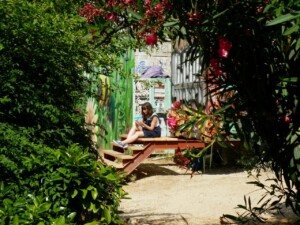
Naravinou park in Athens (photo: Milan Vukasinovic).
In the Navarinou street in Athens, in an alternative area still marked as slightly dangerous for the tourists, there is a peaceful haven. The space left behind after a deconstruction of a public building was used as a parking lot from the 1990s. All the while, the citizens of Athens were being promised to get a greener city. It should be noticed that in a city with the summer temperatures over 40ºC and a high level of pollution, green spaces are not a luxury, but a necessity. That is why the Exarcheia Residents’ Initiative decided to react in 2008, when the leasehold for the parking lot expired. In the spring of 2009 they mobilized the neighborhood, brought the fertile soil and planted trees and flowers. They took over the public space and made it common, as they like to say. They define it as self-managed, anti-hierarchical, and anti-commercial.
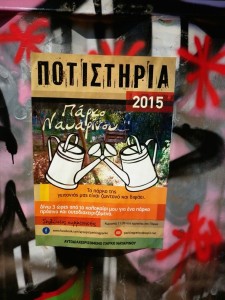
Yet another proof how cooperation can improve people’s lives (photo: Milan Vukasinovic).
From the very beginning the open weekly meetings were organised. Everybody was welcome to make a suggestion and contribute as much as possible to the maintenance of the park. Until now the trees have grown enough to make the shade during a summer day, and an improvised stage, a children’s playground and a vegetable garden were constructed. The posters call for the residents to take 3 hours out of their summer and spend their weekend in taking care of the space they all created. Exhibitions, concerts and other cultural events are organised from time to time.
Serbian Perspective and a Greek Surprise
Coming from Serbia, I have always had trouble understanding the sincere interest of other European citizens to participate in the political life of their countries. That trouble would turn into amazement when I met with the political zeal of Greek people. What got me the most, coming from where I am, is the variety of self-organized civil and communal movements. And the fact that they were not suffocated, but rather sparked by the crisis.
For me, as for the rest of my generation in Serbia, the situation seemed clear. Our recent history showed us that nothing we do can really change the course of political, social or economic events in our surrounding. We breathed our last breath of social optimism. Followed by the last great social movement of Serbian people in the year 2000. But the failed promises of better life and the lack of lustration after the democratic changes left us with the same sets of politicians, social injustice, corrupt institutions, and inefficient economy for 15 years now. They keep telling us that we are walking towards the (star)light, but the light seems to be walking away from us persistently.
Reflecting on the Legacy of Yugoslavia
In addition to that, we had a very characteristic way of understanding what political left meant. By being a citizen (and a worker) of a socialist Yugoslavia you exercised a nominally direct influence on the politics of your country. In return, most of the citizens were made to believe that the country does and should take care of them. They had a general social and health security system, free education and a guaranteed opportunity for a life-long sedentary employment.
But when this socialist project was crashed in the bloody fiasco of national conflicts, its participants suffered a strong disillusionment. Can we really find it strange that no communist party plays any role whatsoever in the political life of any of the ex-Yugoslav countries? Where can we begin to explain how workers’ self-management system slid into the theatre of shadows that we have today? When we try to question the decision of massacring one of the central Belgrade parks, we get a bullying rhetoric in return. When we go out to the streets to protest against violent usurpation of the public space, we get hidden behind the trams from the eyes of the cameras.
That being said, you can imagine the cultural shock I experienced when I tried to understand the political situation in Greece. “When you lose your job, when you lose your house, when you have nothing left to lose, you can sit and starve, or go out and fight.” That is how they explained it to me.
The SYRIZA Phenomenon
But whom do we talk about when we talk about Greek left? The name that shook Europe this year is that of SYRIZA, and of its leader Alexis Tsipras. Most of the peopled I talked to said that their victory at the parliamentary elections brought back the optimism to the exhausted social body. Apart from them, the Communist party and the discredited central-left PASOK hold seats in the Parliament. However, there are 18 other active left parties, ranging from social democratic to green, to communist and anarchist. And they are not only active, but visible, too. From the moment you land in Athens you can see almost every wall covered with posters and graffiti announcing some kind of gathering or event of a different shade of left.
When Citizens Take Charge
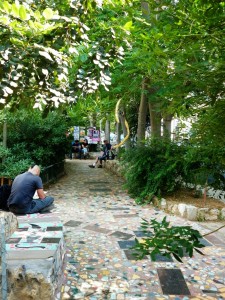
Navarinou Park is only one example of positive consequences of citizens’ self-organisation (Photo: Milan Vukasinovic).
And you can feel this left spirit in the street: Navarinou Park is only one of many public (and often green) spaces taken over by the citizens of Athens. These self-organized and autonomous groups refuse to be passivized, express their urban needs and show their community and solidarity in a non-violent way.
However, even in the urban oasis of Navarinou Park you cannot ignore the fact the Greek are struggling through the crisis. On a sunny week day, among the students, the elderly and the parents with children, I had the chance to talk to a certain retired Socrates, an anti-racist and anti-feminist at the same time. He introduced me to his soon-to-be-homeless friend, who couldn’t find a job and pay the rent. I also spoke in fluent French with a thirty something visibly drugged girl, who did 6 years of law school in France, and now does occasional attorney services in Athens prisons.
The crisis is there, present everywhere and always. Even with my shamefully scarce knowledge of economy I would not want to naively claim that any kind of park could solve it, once and for good. But if I would like to see one product exported from Greece to other European countries, it would certainly be this particular social phenomenon of active citizenship.

